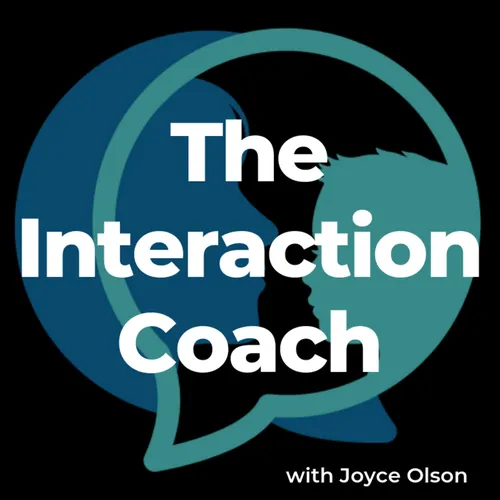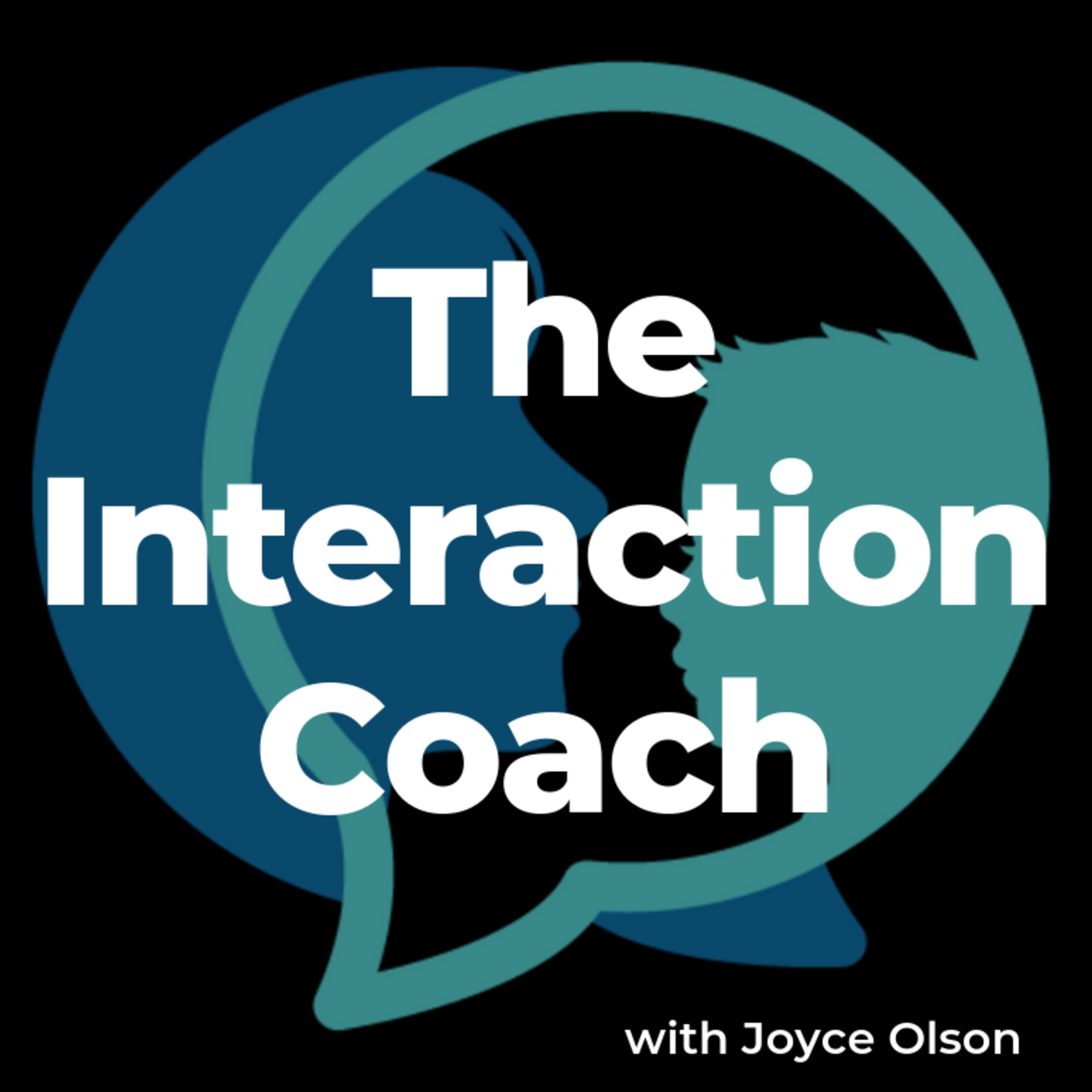
The Interaction Coach
You can help your child learn to talk with speech-language pathologist Joyce Olson of The Interaction Coach. Listen to daily tips that make every interaction a learning opportunity for speech and language development. Whether your child needs to start using words, make longer sentences, or improve social communication, this podcast is for you.
- Update frequency
- every day
- Average duration
- 6 minutes
- Episodes
- 234
- Years Active
- 2019 - 2020

6.194 SOCIAL INTERACTION: Affect and Engagement: Use bedtime routine
Once your child knows the bedtime routine, they want to follow it exactly. Sorry, you can’t skip that book.
Routines help your child feel more secure in knowing what to expect. They can become more i…

6.193 SOCIAL INTERACTION: Affect and Engagement: Show affection in several ways
Your child will show affection with a hug, kiss, pat, They do this with people, pets, and toys.
Today’s activity: Model affectionate actions and label them with a word: hug, kiss, pat. Use the acti…

6.192 SOCIAL INTERACTION: Affect and Engagement: Show how to be gentle
Your child does not yet understand how their actions affect others. They need lots of models of how to be gentle.
Be alert that a strong reaction is a strong reinforcer. Give lots more attention to s…

6.191 SOCIAL INTERACTION: Affect and Engagement: Redirect willful misbehavior
Your child has a mind of their own. They get an idea and they want to do it, even if you say no. Help them learn that when you give a direction, you expect them to do what you ask. Consistency and su…

6.190 SOCIAL INTERACTION: Affect and Engagement: Have a plan for tantrums
Your child is becoming an independent thinker. They get an idea and they want to have that or do that. When we say no, they have feelings about that. They need to learn how to manage these disappoint…

6.189 SOCIAL INTERACTION: Turn Taking: Give toy to get help
Your child will initiate a request—a major achievement! When they need help getting a toy to work, they hand it to you so you can make it go. This is one of the big payoffs for all that turn taking p…

6.188 SOCIAL INTERACTION: Turn Taking: Chase the ball
Your child will enjoy a simple game with lots of action and a little competition.
Today’s activity: Roll a ball, point and say, “Get the ball!” Both of you chase it, but let child reach it first. Pic…

6.187 SOCIAL INTERACTION: Turntaking: Put cards into a slot
You can add variety to turn taking by using some new materials. Variety adds more interest for your child.
Remember, when taking turns you need to wait for your child to take a turn. Avoid saying, “D…

6.186 SOCIAL INTERACTION: Turntaking: Joint play with a toy
Your child will play together with you, sharing a toy. Don’t think of this as “work” because then you will start to think there’s a “right” way for your child to play. You can model things to do with…

6.185 SOCIAL INTERACTION: Turn Taking: Take this to someone nearby
6.185 SOCIAL INTERACTION: Turn Taking: Take this to someone nearby
At this level your child will learn to deliver an object to someone nearby that you name, do joint play with an object, and hand you…

6.184 SOCIAL INTERACTION: Joint attention: Point and say “put in”
You can extend your child’s attention to places far away by pointing to an object of interest. Your child is used to taking turns putting objects into a box near you. Now you can extend that familiar…

6.183 SOCIAL INTERACTION: Joint Attention: Pay with bubbles to shape looking where you point
Joint attention is sharing the focus on some other location—a shared point of focus. An important part of sharing the focus is that we check in with the other person’s face to see what they are looki…

5.181 PLAY: Movement: Go down stairs together
Your child’s mobility gives them lots more opportunities to learn about the world. You can share their excitement and enjoyment of trying out new things when you encourage mutual attention.
Today’s a…

5.180 PLAY: Object Use: Use common objects for a simple purpose
Your child is showing their understanding of the world by using actions with objects. This builds later language skills, building associations between objects and characteristics like what you use th…

5.179 PLAY: Attention to Objects: Search for hidden object in two places
Your child’s concept of object permanence is really developing now. They will persist in searching because they know it has to be somewhere. Even though they can’t see it, they know it exists. This c…

5.178 PLAY: Attention to Objects: Use some novel toys and activities
Your child learns many thinking and language skills during play. This episode describes toys from the list in the Level 5 checklist.
Skills that develop during Level 5 include show more interest in n…

5.177 AFFECT AND ENGAGEMENT: Recognize how your child expresses feelings
Your child’s earliest communication is motivated by how they are feeling. They make movements and sounds that you can recognize as what they do when they do or don’t want something, or like or don’t …

5.176 AFFECT AND ENGAGEMENT: Help child learn to self-soothe
Your child will start to learn how to cope with their feelings when they have to participate in an activity that they don’t like. They might use an object or movement that helps them feel calm or hap…

5.175 AFFECT AND ENGAGEMENT: Be where your child can check your face
At Level 5 your child will check your face to find out your reaction. They will also learn to tolerate a necessary activity that they don’t like but has to be done.
Your child’s mutual attention skil…
